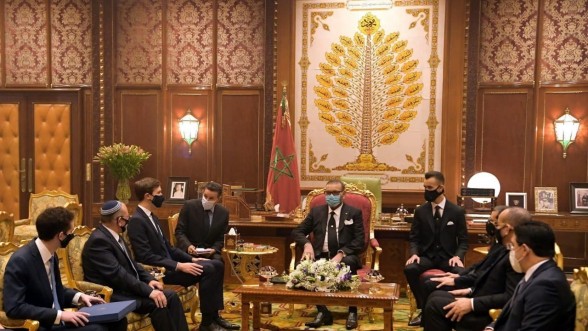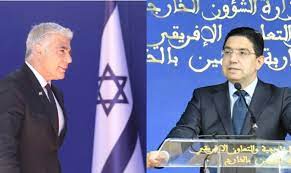Interview with Dr. Norafidah Ismail, conducted by Jakub Janda, Czech political analyst and project coordinator of the European Values think-tank
Mrs. Ismail, you have earned your master degree and Ph.D. in the United Kingdom. Could you compare how it has influenced your views on Middle Eastern issues? Are your views somehow different from those of your colleagues at Universiti Utara Malaysia who do not have the experience from the ‘Western Hemisphere’?
The education background that I gained from British universities helps me develop and deepen my understanding on political, economic and security issues of the Middle East. The increased understanding, no doubt, helps me learning and developing analytical thinking and views on the Middle Eastern issues.
The British education system, to some extent, has gradually also changed the way of addressing and analysing the issues (in particular international relations issues concerning the Middle East). It also encourages me to have a balanced view. Extensive references from different countries are acquired and dealt with before a balanced assessment is adopted. The root causes of specific issue as well as their implications are carefully scrutinized before an analytical work is produced.
The positions that my colleagues (at Universiti Utara Malaysia) and I have achieved on certain issues have sometimes small differences. This situation is partly shaped by the principles and theories that we believe and advocate. The education background that we have, however, wields a subtle influence on these positions.
You co-authored a book on Sino-Saudi relations. Could you put them in the context of the recent crisis in Gaza?
The policy behaviour of China and Saudi Arabia towards Israeli aggression was coherent and relatively consistent. The two countries demonstrated common understanding of the conflict. They were also seen to adopt a similar posture towards the aggression by sharing the grim fate of the Palestinians. Against this political backdrop, one may argue that China has continued winning the hearts of Arab leaders.
The recent lethal violence in Gaza continued to unveil a Chinese stance of supporting the just cause of Palestinians and diplomatic initiative pursued by the Arab world. Chinese leaders discussed with Egyptian Foreign Minister, Mohamed Kamel Amr, the deteriorating situation in Gaza. They also extended their country’s support to Egypt and other Arab countries in mediating the ongoing conflict. China welcomed a cease-fire agreement and offered humanitarian aid to Palestine.
Saudi Arabia showed its deep and pressing concern over the development in Gaza and emphasized the principal role the Arab world and the international community has played in repelling a series of Israeli attacks against Palestine. The Kingdom denounced the Israeli assault in Gaza. The Saudi Crown Prince Salman bin Abdul Aziz Al Saud discussed the Israeli brutal assault with Jordanian King Abdullah, promising an increased cooperation with the powers in the region and at the international level with the aim to deter this aggression. Saudi Minister of State for Foreign Affairs also called for a ‘stronger and more unified Arab stance’ concerning the appalling situation in Gaza.
From you point of view, do you observe any significant changes in Chinese influence to the Middle East and North Africa region?
There is a visible improvement of Chinese political and economic influence in the Middle East. China gradually increases its political leverage and reveals its growing presence in the region by fulfilling its special role as one of the permanent members of the UN. The Syrian crisis is the best case that we can refer to. China is seen to prolong the day-to-day survival of President Bashar al-Assad’s regime. This critical stance, however, is openly criticised by the Western powers.
China also successfully maintains its economic foothold in the region. Its economic interests remain strong and paramount. In 2011, the trade value between China and the Arab states was US$200 billion (increased by 35 percent from the previous year). In the 2000s, the bilateral investment between both sides grew eightfold.
Do you see the American bond to Saudi Arabia being weakened by current developments in the region?
The current developments (which specifically refer to the Israeli-Palestinian conflict) create a significant challenge to the US-Saudi bilateral relations. Washington and Riyadh have some clear differences in this conflict. Israeli violent attacks on Gaza Strip in November 2012, for example, indicate different positions and strong stances that the two countries have assumed. In this bloody conflict, the US agreed on Israeli aggressive action. Saudi Arabia (along with other Arab and Muslim countries), on the other hand, strongly denounced this controversial move.
What are some of the important developments that we should closely watch in the near future?
The US reaffirmed its unflagging support for Israel and stressed some contributing factors that explained Israel’s aggressive behaviour. The US supported the right of Israel to defend itself against the attacks from Gaza which were considered as the acts of terrorism. The House of Representative passed H. Res. 813 in November 2012 that confirmed ‘vigorous support and unwavering commitment to the welfare, security and survival of the State of Israel as a Jewish and democratic state with secure borders and recognizing its right to act in self-defence to protect its citizens against acts of terrorism’. Another example that shows the unwavering support is American investment in Israeli mortar defence system and Iron Dome rocket.
Saudi Arabia firmly opposed the occupation practices of Israel by denouncing a recent event of Israeli onslaught against the people in the Gaza strip. The Kingdom also called on the international community to play a substantial role in this conflict. Saudi Minister of State for Foreign Affairs stressed the substantial responsibility of the UN Security Council to compel Israel to end the violence and blamed the Israeli occupation government as the only (single) actor that bore a total responsibility for a worsening condition in Gaza.
The US and Saudi foreign policy responses on the Israeli-Palestinian conflict have, to some extent, reached a certain degree of conformity. The Kingdom, for example, offers some support for the US approaches to this conflict (this support has been taking place since the beginning of 1990s). The Kingdom has endorsed peace agreements between Israel and Palestine and pursued ‘a more proactive approach’ to the peace-making and diplomatic efforts between the two conflicting parties.
With regard to the current development, the US and Saudi Arabia seem to be on the same page in responding to Israeli plans of constructing thousands of settlement in East of Jerusalem. The Kingdom argues that Israeli settlements will affect the peace process. Saudi Minister of Foreign Affairs was critical to Israeli immediate retaliation against the UN resolution (this resolution granted the status of an observer state at the UN to Palestine). For the Prince, such retaliation which led to the development of more Israeli settlements would upset a two-state solution. The Prince pointed out that ‘where can a Palestinian state be created and what are the lands belonging to it as the West Bank is controlled by Israel almost entirely? … Without withdrawing from these lands, I think that there is no chance or possibility of a two-state solution’.
What is Washington’s take on that?
A State Department spokesman revealed a position of the US regarding Israeli plan of developing more settlements. The plan would pose a difficulty of resuming bilateral negotiations and complicate the initiatives of having two-state solution. He said that ‘the United States oppose all unilateral actions, including West Bank settlement activity and housing construction in East Jerusalem… [and] we have made clear to the Israeli government that such action is contrary to US policy’.
The relationship between the US and Saudi Arabia remains solid, though it has been constantly challenged by the Israeli-Palestinian conflict. The two countries have been fostering and enjoying a special relationship. They need each other for promoting and keeping their mutual interests.
Norafidah Ismail is Senior Lecturer at University Utara Malaysia. Her area of specialization is the International Relations of the Middle East and International Political Economy. She has co-authored, with Tim Niblock, the article ‘An Intensifying Sino-Saudi Relations’ in a book ‘Multidimensional Diplomacy of Contemporary China (Lexington Books, 2010) and has delivered several conference papers on China’s growing involvement in the Gulf. Dr. Ismail earned an M.A. in International Political Economy from the University of Leeds, and a Ph.D. in Arab and Islamic Studies from University of Exeter, United Kingdom.



